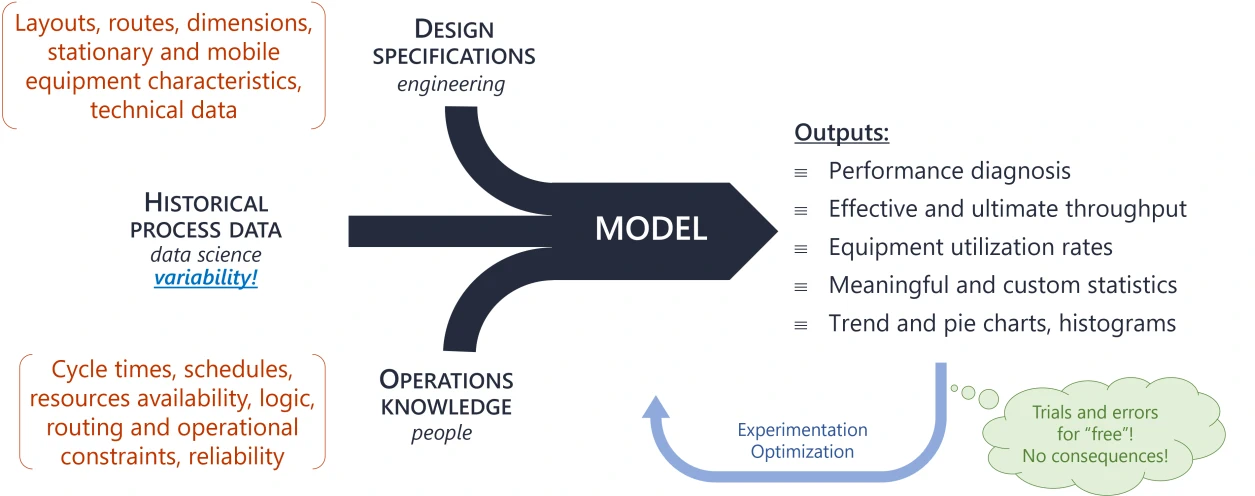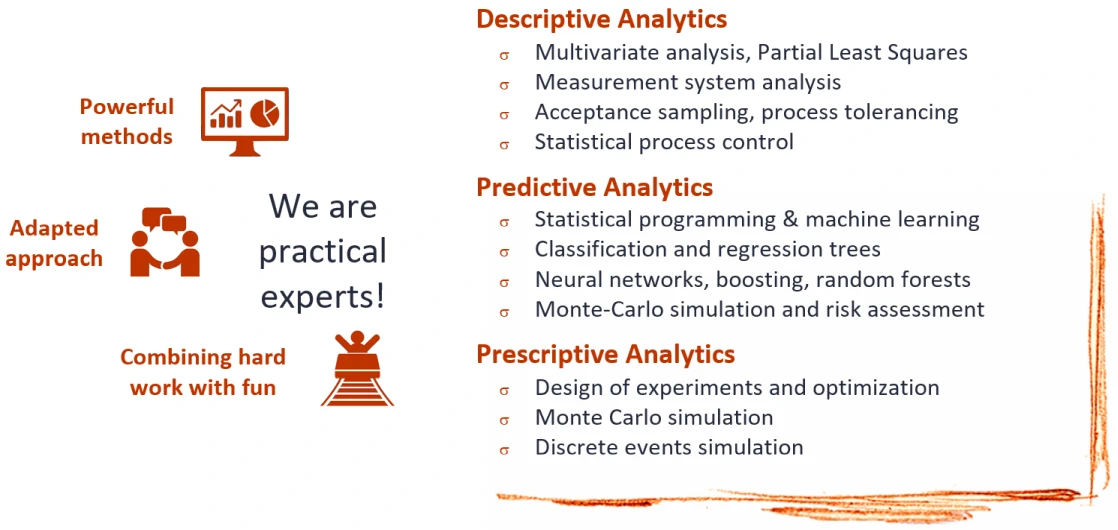Why this question
This is a question I tried to answer many months ago. I was explaining that the traditional boundaries between machine learning, simulation and optimization disciplines were fuzzy and vanishing in my mind.
Fundamentally, a model is a parametric relationship in which we feed input data & information to get an estimate of the system’s performance. The purpose of modelling is to obtain a simplified and abstract view of a complex system to understand how it works.
Potential answers
For many years, modelling has been defined as developing equation sets to represent a system. Data sometimes was available, sometimes not. With today’s programming technologies, data abundance and computer capabilities, why restrict to only one discipline when tackling a complex problem? So, what is a model? Is it...:
- Statistical regression (multiple linear, logistic, PLS, etc.)
- Database lookups and data crawling
- Predictive machine learning (boosting, neural nets, random forests, etc.)
- Spreadsheet calculations (they can become quite complicated…)
- Simulation (discrete event, dynamic, finite elements, Monte-Carlo, etc.)
- Mathematical programming (optimization or operations research)
- Custom workflow with nested data processing and modelling steps
The correct answer: all the above! Having this in mind at Différence, we developed a unified modelling scheme which we apply anytime we need to “model” a complex situation:

Combining enough of the above 1) to 7) ingredients to get the “best” representation of a system is a genuine scientific multi-disciplinary exercise. All systems are unique, there is no universal recipe. Différence can train, coach and help practitioners to learn how to achieve modern multi-paradigm modelling. Want to see it in action?

Want to learn more?
At Différence, our core expertise is centered on statistic and data science, Lean applications and operational excellence, and… simulation! Don’t hesitate to ask for more information by contacting us.

